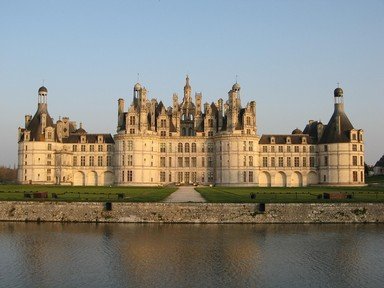Quiz Answer Key and Fun Facts
1. Which of these comes first in the history of France?
2. Which of these Kings of France never existed?
3. One of the French Kings who took part in a crusade was Louis VII the Younger, who is even more famous however because his wife left him, and married the future King of England, Henry II, at that time Count of Anjou. Her name?
4. One of the most important Kings of France was the victor at the Battle of Bouvines in 1214. What 'countries' did the coalition consist of that he defeated in that battle?
5. Another famous King of France is Louis IX also called Saint-Louis. He was born in 1214, became King in 1226 and died in 1270. Which of these four statements about him is incorrect?
6. One of the French Kings who was hated by many of his vassals and subjects was Philip the Fair. In spite of a number of heinous actions he is considered by modern historians to have been a talented administrator and a ruler with a well-developed sense of foresight. Which of these 'crimes' was he NOT accused of?
7. There were quite a few Fair Kings in France (Philip IV, Charles IV), a Wise one (Charles V), a Tall one (Philip V), a Bold one (Philip III) but only one POSTHUMOUS one nl. John I. How did he earn himself that strange title?
8. At the time of the Battle of Agincourt (1415) the throne of France was virtually vacant because ________________________
9. Because Henry VI of England had been declared King of France on the death of his father, Henry V, in 1442, the authority of Charles VII was not really recognised. It took a lot of time and Joan of Arc, before he was finally anointed King in Reims (1429). What had been his nickname in the period that he was still 'hiding' in the Berry province of France?
10. Which of these statements is not correct?
11. Francis II King of France from 1559 till 1560 was married to a woman who became much more famous in history than he himself. Who was she?
12. Which French King a. was a Bearnais, born at Pau in the Pyrenees, b. first married Margaret of Valois, then Marie de Medicis, c. commented on his 'conversion' to Catholicism that after all 'Paris was worth a Mass'?
13. What was the name given to the infamous killing of Protestant Leaders on 24th August 1572, under the reign of Charles IX?
14. Who was the French politician that had been selected by Richelieu as his successor and actually governed France during the childhood and adolescence of Louis XIV, the later Sun King?
15. Which of these was the legitimate wife of Louis XIV, the Sun King of 'I am the State'-repute?
16. What was the name of the great military architect of Louis XIV?
17. The last monarch of France was Louis-Philippe.He came to the throne in 1830.His father, the Duke of Orleans, and a cousin of Louis XVI, had at the time of the Revolution taken sides with the Revolutionaries and even voted in favour of the death of the King . What was the nickname which the French had, for that reason, given to Louis-Philip's father?
18. During the Battle of Waterloo, Napoleon was legally speaking a traitor to his own monarch Louis XVIII, the brother of Louis XVI of painful guillotine memory. Where was Louis XVIII waiting for the outcome of the battle between the Duke of Wellington and the French?
19. What happened to Louis XVII, the son of Louis XVI who never became king?
20. Where would you find most tombs of French Kings ?
Source: Author
flem-ish
This quiz was reviewed by FunTrivia editor
bloomsby before going online.
Any errors found in FunTrivia content are routinely corrected through our feedback system.

